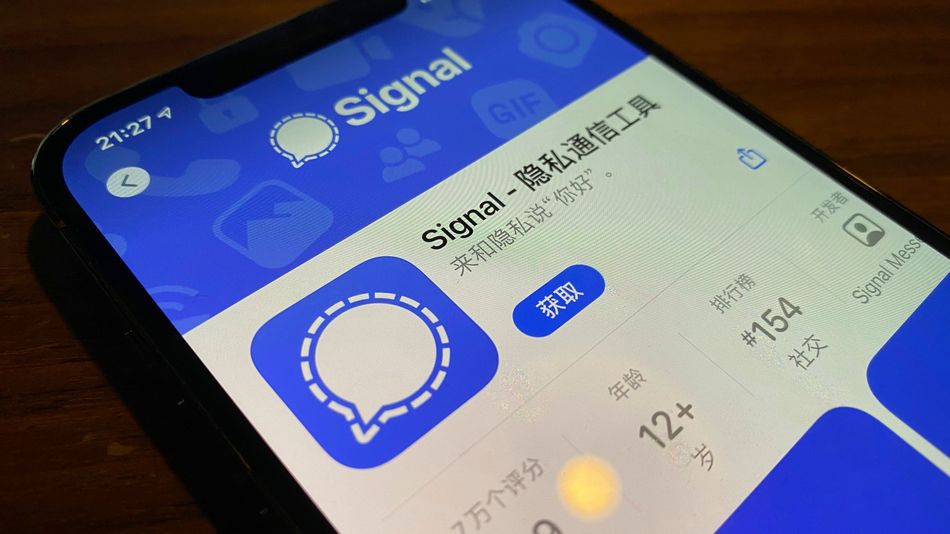
Image: Ng Han Guan / AP / Shutterstock

Follow @https://twitter.com/PCMag
PCMag.com is a leading authority on technology, delivering Labs-based, independent reviews of the latest products and services. Our expert industry analysis and practical solutions help you make better buying decisions and get more from technology.
China is now blocking encrypted chat app Signal, preventing those in the region from sending messages free of government monitoring.
On Tuesday, users in the country began reporting they were no longer able to send or receive texts via the Signal app. Access to Signal’s official website is also down, according to GreatFire.org, a site that tracks the country’s online censorship.
Signal is blocked for me here in Shanghai as well. Lots of people talking today about the app being blocked. I can’t send or receive messages without being on a VPN
— Keegan Elmer (@inthenewera) March 16, 2021
Signal did not immediately respond to a request for comment. But the app was one of the last foreign messaging services still available in China. Over the years, the country has also blocked access to WhatsApp, Telegram, Line, in addition to Facebook, Google, and Twitter. Local users have to instead use Chinese-made apps, such as WeChat, to converse with each other online. But the same apps will routinely censor content, and even spy on users’ texts.
Signal, on the other hand, provides end-to-end encrypted messaging, meaning Signal itself can’t view your messages, even as the content travels through its servers.
Why China only began blocking the Signal app now remains unclear. But in mid-January, the Signal app saw an increase in downloads from users in China right as Tesla CEO Elon Musk encouraged his followers to use the app.
To bypass the blocking, users will have to use a VPN service. However, China has been working to also ban VPN use. In 2017, Apple’s iOS App Store took down numerous VPN apps to comply with Chinese regulations.
Local users looking for a foreign messaging service can still use Apple’s iMessage in the country. Nevertheless, Apple has been storing customers’ iCloud data in servers based in China, enabling the Chinese authorities to gain access if needed.
This article originally published at PCMag
here
